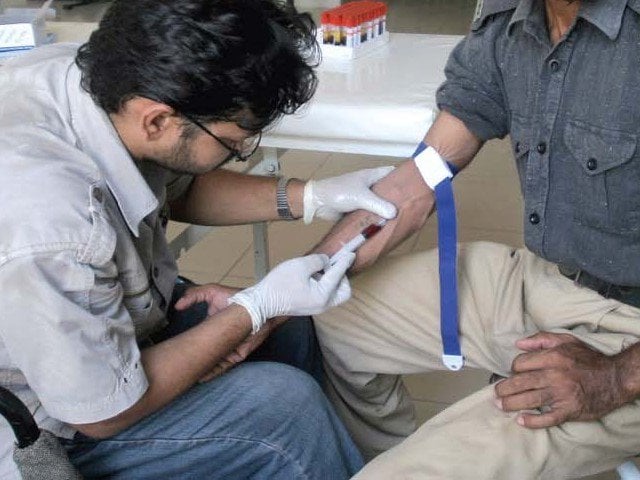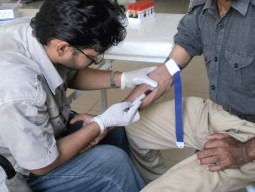
Today is World Hepatitis Day. This day serves as a global reminder that nearly 1.5 million people still die around the world as a result of contaminated water, poor medical care, unsanitary injections, and a lack of disease awareness. In 2022 the theme of World Hepatitis day is ‘I Can’t Wait’.
Fifteen million people suffer from Hepatitis B and C in Pakistan, making it the biggest killer among communicable diseases. Hepatitis B and C are both blood-borne diseases that are spread through unsafe injections, unsanitary practices at hospitals, dental clinics and tattoo parlors, among other causes.
A lesser known but dangerous form of Hepatitis is Hepatitis E, which is water-borne, and in Pakistan, is also one of the leading causes of deaths in expecting mothers and in patients with a history of liver disease.
Read more: Scourge of hepatitis needs prudent handling, says expert
Between 40% and 60% of Pakistanis living in the urban areas lack access to safe drinking water. Also, 25-40% of hospital beds in Pakistan are occupied by patients suffering from waterborne diseases such as cholera, diarrhea, typhoid, and Hepatitis E (HEV). Maternal mortality rate due to Hepatitis E can reach 38%, while the fetal mortality rate can reach 48%, one of the highest in the world.
Hepatitis E is a liver inflammation caused by infection with the Hepatitis E virus (HEV). The virus spreads through the fecal-oral route, primarily through contaminated water. Every year, an estimated 20 million HEV infections occur worldwide, resulting in an estimated 3.3 million Hepatitis E symptomatic cases. According to estimates, Hepatitis E took the lives of 70,000 people last year.
A promising development in the country’s fight against Hepatitis E occurred last year with the introduction of Hecolin, the world’s first vaccine against Hepatitis E, introduced in Pakistan by Ferozsons Laboratories Ltd in partnership with Xiamen Innovax Biotech, a renowned Chinese biopharmaceutical company.
Also read: Hepatitis patients awaiting medicine supply
Hecolin is a promising Hepatitis E vaccine that can significantly reduce maternal mortality resulting from Hepatitis E. Results of its phase III trials and its long-term efficacy were published in The Lancet and The New England Journal of Medicine, respectively. With the vaccine now freely available, government has the option of vaccinating its citizens who are at higher risk of developing life-threatening complications due to HEV.
“According to a recent estimate, over 200,000 new patients develop hepatitis every year, and 10% to 40% of people with chronic infection may develop cirrhosis and potentially liver cancer,” said Osman Khalid Waheed, CEO of Ferozsons Laboratories Ltd.
“Many people contract the infection unknowingly, because of the reuse of syringes, dental equipment, and barber shop equipment,” he further said. Highly effective treatments for hepatitis C can cure the infection in over 96% of people and two lethal forms of viral hepatitis - Hepatitis B & E - can be prevented through vaccination.”
“As a country, we need to focus on disease prevention through awareness and vaccination, and in the case of Hepatitis C in particular, elimination through treatment and cure,” he added.


1732266251-0/Josh-Brolin-(1)1732266251-0-165x106.webp)
1732266343-0/BeFunky-collage-(82)1732266343-0-165x106.webp)

1732268955-0/BeFunk_§_]__-(33)1732268955-0.jpg)

1732263788-0/BeFunk_§_]__-(30)1732263788-0.jpg)
1732267954-0/Express-Tribune-(6)1732267954-0-270x192.webp)











COMMENTS
Comments are moderated and generally will be posted if they are on-topic and not abusive.
For more information, please see our Comments FAQ